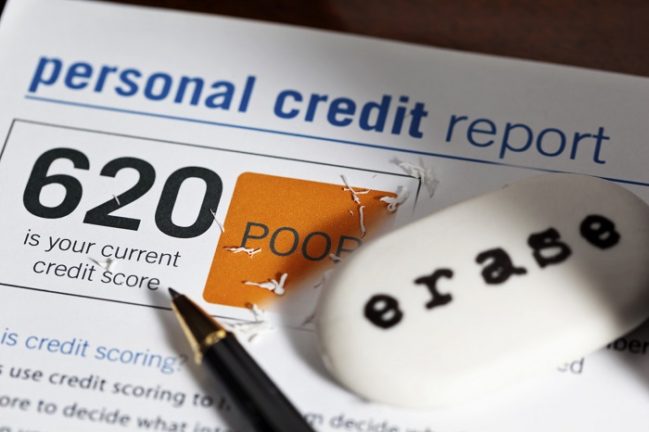How Credit Works: The Basics
To put it simply, credit is an agreement between a lender and a buyer. The buyer is able to purchase things now and pay the lender back later. Usually, the buyer has to pay interest at the agreed-upon interest rate. Financial institutions judge your creditworthiness by looking at your credit reports from the three credit bureaus: Equifax, TransUnion, and Experian. These reports help creditors and lenders decide whether to extend a line of credit to you.
Types of credit
Credit cards aren’t the only type of credit out there. Much more than that shows up on your credit report.
Revolving credit: Most credit card accounts are a type of revolving credit. Revolving credit has a specific limit and requires minimum monthly payments. Any balance carried over on these accounts is usually charged interest.
Installment credit: When people think of installment credit, they usually think of loans. Using installment credit means signing an agreement to pay back a specific amount by a specific time. This usually involves interest.
As soon as you start to use credit, you will start to build credit history in the form of a credit report.
What’s on your credit report?
Your credit report influences many of life’s biggest purchases. Future lenders and creditors check your report for creditworthiness. If your report and/or your score is poor, you risk not being able to get the credit card or loan you need.
Here are the main components of your credit report:
- Identifying information
- Credit history/tradelines
- Credit inquiries
- Public records/Collections
- Consumer statements
The 5 components of credit scores
Your credit score is a numeric value that lenders use to assist in assessing your creditworthiness. Building credit means taking every aspect of your score into consideration. To positively impact your credit as a whole, analyze which of these aspects needs the most attention in your situation.
Credit history – 35% – Have you been making payments on time? Your payment history for your credit accounts is the most important aspect of your credit score.
Credit utilization – 30% – How much of your credit limit are you using? If you’re using over 30%, that actually negatively impacts your score.
Credit age – 15% – How long have you had a credit file? The longer you’ve been building credit, the better it is for your score.
Types of credit – 10% – Do you have different types of accounts on your credit file? Varying types of credit (credit cards, mortgages, auto loans, etc.) boost your score.
Credit inquiries – 10% – Have you recently applied for lines of credit? New applications or too many inquiries on your credit can have a negative impact.
Learn more about achieving good credit in the video below:
Things you do that affect your credit
More things affect your credit than you think. Keep an eye on your financial habits – they could be doing silent damage.
Spending
Do you use credit for most of your purchases? This has an important effect on your credit because it affects your credit utilization and your payment history.
Inquiries
Applying for loans or credit cards means adding inquiries to your credit report. Too many inquiries into your credit within a six-month period looks bad to future creditors. It can make it seem like you are taking on too much new credit at once.
Taking loans/Financing
Personal loans, auto loans, mortgages, etc. all end up on your credit report. As long as you make payments on time, this can be good because it adds variety to the type of credit accounts you have. However, if you fall behind, these accounts will hurt you.
Failing to check your credit report
Some consumers avoid checking their credit reports either because they don’t know how or they’re afraid it will be bad news. Checking your credit report, and even your own credit score, will not hurt your credit.
Tricks for Building Your Credit
Building credit takes time. There’s nothing that you can do that will take you from no credit score to excellent credit overnight. You simply need to add new credit gradually and always make sure you can make your payments on time every month.
With this method, you should be able to start building your way to a good credit score within about six months to a year. Still, there are other ways to build your credit besides giving it time and making your payments. Here are a few ways to start creating the credit of your dreams:
Report your rent and other data
Do you pay your rent on time? You can ask your landlord to report this to the credit bureaus. On-time payments are good for your credit but are often left unreported.
You can also report other positive financial data, such as utility bill payments. Experian Boost is a free service that allows you to easily boost your credit by connecting payment histories from other accounts.
Become an authorized user
Being an authorized user on on someone else’s credit card account can also be good for your credit. Most (but not all) credit card companies will report credit history for an authorized user to the credit bureaus. If you have a family member that’s willing to add you as an authorized user, make sure to check with the credit card company first to make sure they will report the history on for you to the credit bureaus. If so, you can become an authorized user and build credit that way.
Use a co-signer
Some banks and credit unions allow someone with better credit to sign on a loan with you. This means that if you can’t pay, they are responsible for the loan payment. Always make sure you can afford to pay back a loan before you ask someone to cosign. You don’t want to ruin someone else’s credit while trying to build your own!
Get a credit builder loan or secured loan
A credit builder loan is specifically designed to help you raise your credit. When you take out the loan, the bank puts it into a Certificate of Deposit (CD) that they control. A CD is a savings tool that earns interest for you over time, so you build savings while you build credit. You then make your monthly payments like any other loan.
Try a secured credit card
A secured credit card means paying a deposit before you charge. The amount of your deposit turns into your credit limit on the card. Secured credit cards don’t require good credit to qualify. They’re usually the easiest cards to get if you have no credit.
Credit-Building Tricks to Avoid
Some common credit-building tactics aren’t for everyone. Here are a couple you may want to avoid:
Requesting an increased limit for your current credit card
A higher credit limit will lower your credit utilization ratio in your favor. This is true as long as you continue spending at the same level as before, but it can be difficult to resist the temptation. Don’t do this unless you are certain you won’t spend more.
Getting a rewards credit card
Signing up for a rewards card may seem like a great way to get some kickback from your purchases. However, many people overspend in an effort to rack up points, especially for signup bonuses that require you to spend a certain amount within a set time after you open the account.
When you have no credit card
If you don’t have or want a credit card, there are still ways to build a good credit history and raise your credit score. Here are a few ways to start:
Student loans
Making on-time payments on student loans helps your credit with or without a credit card. If you have student loans, make it a priority to make your payments every month. Credit scores are not a factor to qualify for federal student loans and even some private loans. That means you can use student loans to build credit.
Auto loans
Auto loans are another way you can boost your credit. When you finance the purchase of your car, you agree to pay back your auto lender in monthly installments. Since the car you purchase is used to secure the loan, it’s often easier to qualify.
Mortgage loans
It may be difficult to get a mortgage without a credit history. However, if you already established credit and/or have a mortgage, making on-time mortgage loan payments will help build your credit. A mortgage is one of the best debts you can have according to creditors, so it looks good to have a mortgage with good credit history on your credit report.
Nonprofit lending circles
Nonprofit lending circles are a new take on a very old concept. It started with friends and family members creating their version of a loan shared among multiple people. Now, they involve groups of people lending money to each other with very little or no interest. When they’re organized correctly, these can help you build credit.
Using Credit Responsibly
Being responsible with credit is essential for every consumer. Most of this advice boils down to one simple idea: don’t treat credit like credit. Treat it like money.
It sounds easy, but many people have trouble seeing their loans and credit cards like real money with real consequences. Since they can pay it back later, it doesn’t feel as urgent.
If you have trouble using credit responsibly, use these guidelines to help keep you on the right path:
1. Don’t spend more than you can reasonably pay back.
Whether it’s a credit card or a personal loan, credit is not free money. Find other ways to make big purchases if you know you won’t be able to pay. Additionally, try not to carry a balance on your credit cards. The more you can pay off every month, the less likely you are to go into debt. If you can’t pay off the whole balance, at least make sure to always pay the minimum so you don’t have a missed payment on your record.
2. Know if you’re in too much debt.
It’s important to know when you’re in too deep. Keep track of all your debt and understand the signs of carrying too much.
Also make sure you know how much credit card debt is too much. You can’t address a problem if you don’t know it’s a problem.
3. Learn more about credit.
Responsible credit users know how credit works and continually educate themselves on personal finance.
If you already have credit, you may have heard of credit repair. Consolidated Credit has a simple guide to free credit repair that you can review here.




